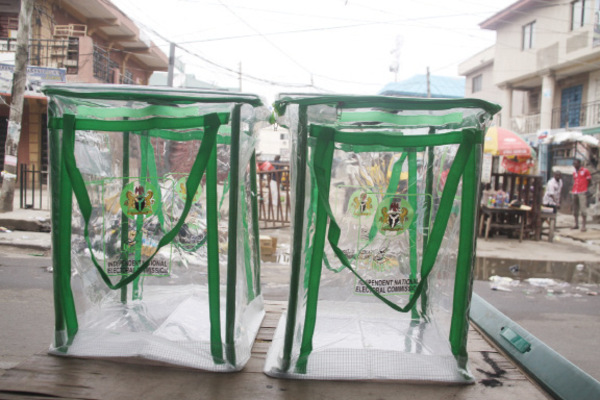On Athena Center’s 2023 Off-Cycle Guber Elections’ Review
By Hamza Ibrahim On August 19, 2024, a lawyer from Kogi State named Samuel Omachi, published a critique of the Athena Center for Policy and Leadership’s review titled “Revelations of Bayelsa, Imo, and Kogi Elections, 2023.” The review, spearheaded by Osita Chidoka, former Minister of Aviation and Chancellor of the Athena Center, provides a comprehensive […]

By Hamza Ibrahim
On August 19, 2024, a lawyer from Kogi State named Samuel Omachi, published a critique of the Athena Center for Policy and Leadership’s review titled “Revelations of Bayelsa, Imo, and Kogi Elections, 2023.” The review, spearheaded by Osita Chidoka, former Minister of Aviation and Chancellor of the Athena Center, provides a comprehensive analysis of the off-cycle governorship elections held on November 11, 2023, in the states of Bayelsa, Imo, and Kogi. It examines the conduct, results, and anomalies of the elections, raising pertinent issues about the electoral process in Nigeria.
In his critique, Omachi dismissed the review as a mere tabulation of personal opinions, claiming it lacks factual evidence and is biased due to Chidoka’s affiliation with the Peoples Democratic Party (PDP). He further questions the credibility of the data presented in the review, arguing that the conclusions drawn by Chidoka are baseless and politically motivated. However, a closer examination of Omachi’s assertions reveals significant gaps in his arguments, which this response aims to address.
Omachi’s critique is fundamentally flawed, beginning with his dismissal of the Athena Center review as a product of political bias. The review is not a haphazard compilation of opinions but a meticulous analysis backed by empirical data. The report utilizes data obtained from field reports, independent observers, and digital records, including those from INEC’s BVAS machines. To trivialize the review as mere political commentary is not only disingenuous but also reflects a lack of understanding of the rigorous methodology employed by the Athena Center.
One of Omachi’s key criticisms is the claim that Chidoka’s analysis of over-voting in the three states is unfounded. However, the review clearly outlines the evidence of over-voting in specific polling units, supported by discrepancies between BVAS records and the final results announced by INEC. For instance, in Kogi State, the review highlights significant variances in voter turnout figures when cross-referenced with the number of accredited voters recorded by the BVAS machines. These discrepancies are not fabrications but are substantiated by data that is publicly accessible.
Omachi also questions the presence and capacity of the Athena Center’s observers during the elections. He compares the Center’s efforts to those of other organizations like Yiaga Africa, implying that the Center’s findings are invalid due to its smaller popularity, as if an organization’s work should not be assessed purely based on its quality. This argument is both reductive and dismissive of the valuable work done by specialized organizations. The Athena Center’s focus is not on blanket coverage but on targeted, in-depth analysis of specific issues within the electoral process. The review’s conclusions are drawn from thorough investigations into key anomalies, which were corroborated by multiple sources, including election observers on the ground.
Moreover, Omachi’s assertion that the review lacks probative value because it was conducted by a PDP member is a classic ad hominem fallacy. The validity of an analysis is determined by the strength of its evidence and arguments, not by the political affiliations of its author. The review provides a factual basis for its claims, challenging the electoral process in a manner that is constructive and aimed at improving the integrity of future elections. To dismiss these findings solely based on the author’s political background is an attempt to sidestep the real issues raised in the report.
Another critical point raised by Omachi is the perceived incongruity in Chidoka’s conclusions regarding the impact of over-voting on the election outcomes in Bayelsa, Imo, and Kogi States. He misrepresents Chidoka’s analysis, suggesting that it selectively undermines the victories of APC candidates while sparing the PDP candidate in Bayelsa. However, the review does not make arbitrary claims; it assesses each state individually, considering the specific context and data from each election. The findings in Bayelsa are distinct from those in Kogi and Imo because the nature and extent of the irregularities differ in each case.
In conclusion, Omachi’s critique is riddled with inaccuracies and a failure to engage with the substantive issues raised by the Athena Center’s review. By dismissing the review as mere political posturing, he overlooks the critical contributions it makes to the discourse on Nigeria’s electoral process. The Athena Center’s work is a valuable resource for anyone genuinely interested in understanding and improving the integrity of elections in Nigeria. Rather than attacking the messenger, it would be more constructive for critics like Omachi to engage with the evidence presented and contribute meaningfully to the ongoing debate about electoral reforms in the country.
Ibrahim sent this piece from Abuja
